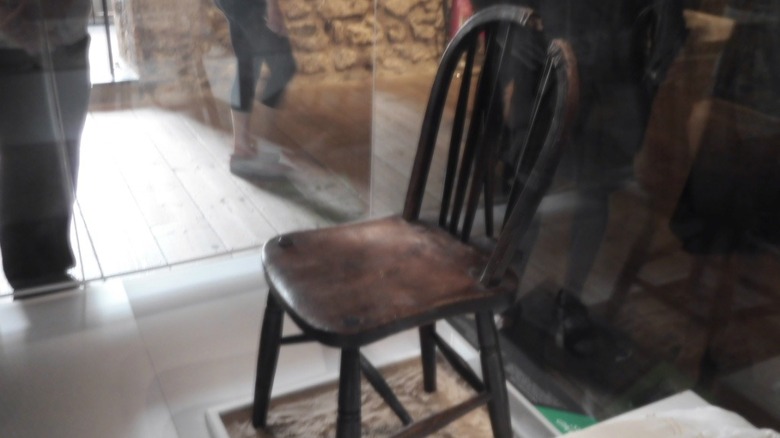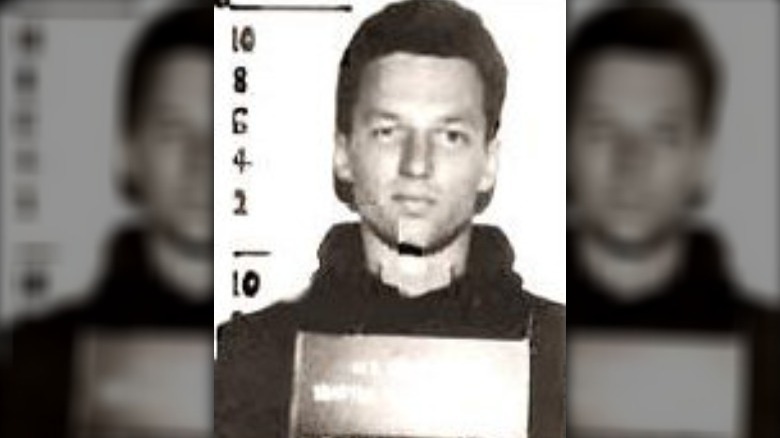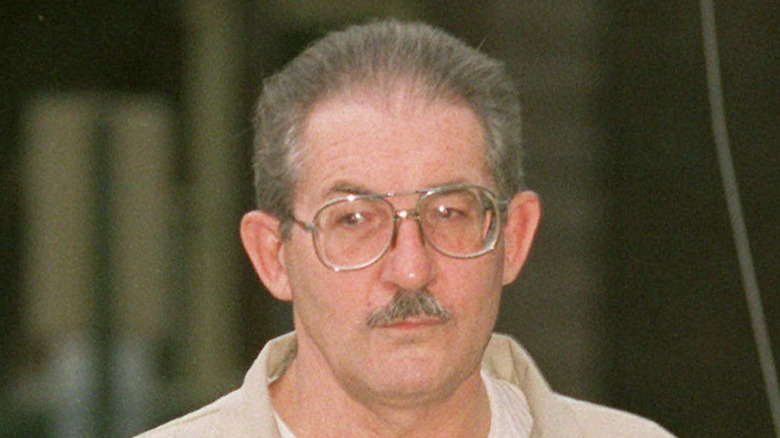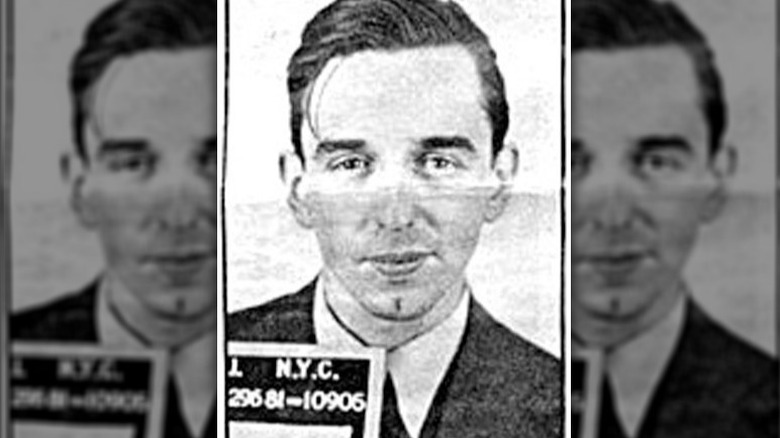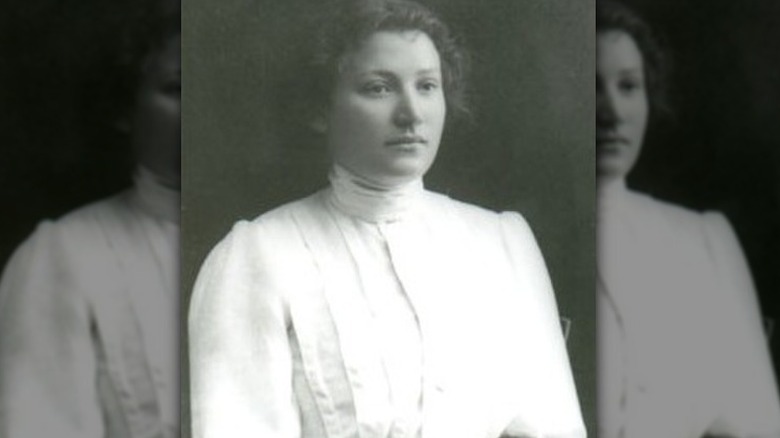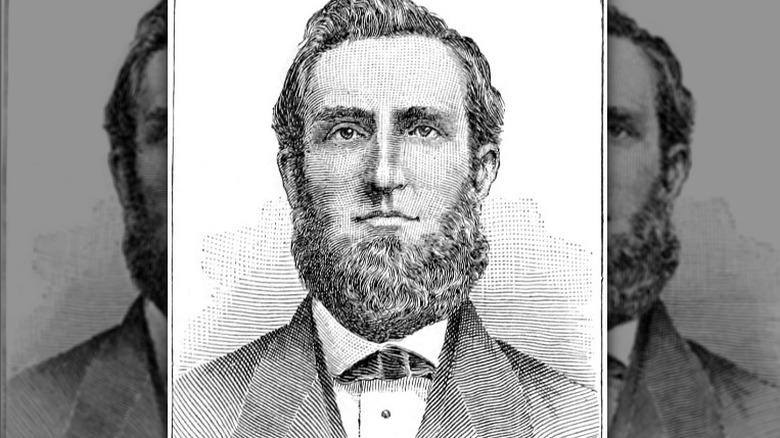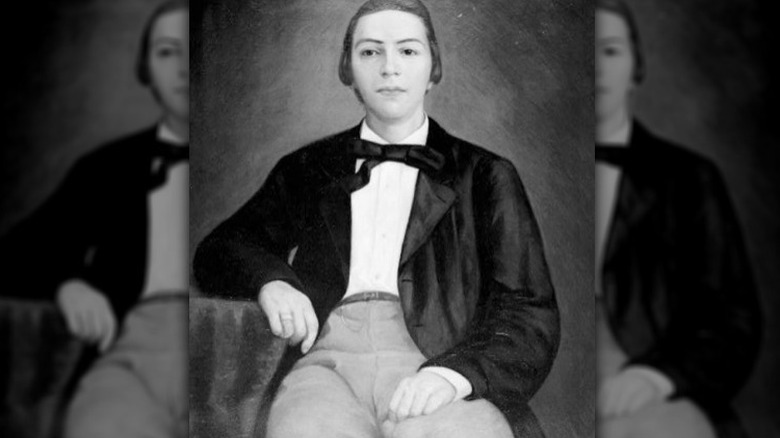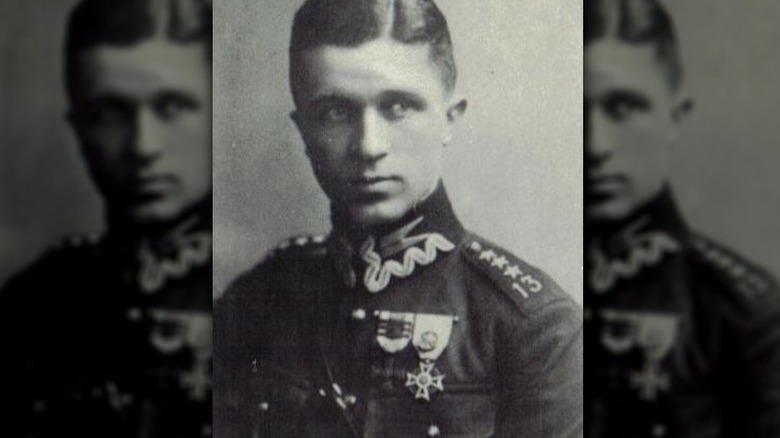The Weirdest Ways Spies Have Been Caught
The history of espionage is rather extensive, having existed since ancient times. Ancient Egyptian pharaohs utilized spies in their courts, and the Romans sent agents of the state to listen to possible dissenters among the masses (via Encyclopedia.com). From that point on, there have more or less always been enemy and allied agents alike among the throngs of everyday people. Start factoring in wars, and fears of wars, and the nature of spying becomes an even more serious game. Military technology and state secrets are constantly changing hands, and the job of the spy is to become one of those hands in order to capture secrets that could benefit the nation they serve.
Which, naturally, carries a pretty high probability of getting caught, given that the hands spies steal from belong to military and intelligence personnel. If a spy gets caught, they very often face capital punishment for treason.
There are any number of ways for spies to get caught in the act. Crossing a border, getting ratted out, or even something seemingly small and innocuous, like an undercooked accent. Trying to fit into the nation they're spying on is the key, and that is often the root of the undoing. One small slip-up is all that's needed to trigger counter-intelligence officers to scoop up a suspect and try them for espionage.
Here are some of the strange ways that spies — even the best of them — have been caught.
The spy who bought flowers the wrong way
Consider all the small customs specific to each individual nation that a spy has to master to truly immerse themselves. Never mind learning the actual language, what about the nuances of each language? Then there is the seemingly small matter of how you walk, hold yourself, and hold other things — also known as body language.
Former FBI Agent Joe Navarro is a master of body language, and it was through that mastery that he was able to identify foreign agents. In an interview with WIRED, Navarro revealed all sorts of methods. While tracking one particular enemy spy, Navarro and the FBI just couldn't get anything to pin any charges on him, but then they caught security footage of him coming out of a flower shop, and Navarro saw all he needed.
According to Navarro, while no one else on his team was able to identify anything out of the ordinary, using his 25 years of experience as a body language expert, he noticed how the suspect was carrying a bouquet of flowers. While people in the United States will hold it by the base with the flowers sticking up, this spy flipped it around, with the bouquet coming out of the bottom of his hand and held behind him — the way that they carry flowers in Eastern Europe. The FBI moved in, Navarro told the spy how he knew, and the spy confessed.
The spy carrying a German sausage
Josef Jakobs had served in the German military in World War I, but by the time World War II began, work was hard to come by. So to get by, according to a book written by his granddaughter, Giselle Jakobs (via the Express), that tells the story of her grandpa's short-lived spy days, he sold fake passports to help Jewish citizens get out of Germany. Naturally, this didn't sit well with the up-and-coming Nazi party, and he was sent to a concentration camp to be tortured. When he eventually left said camp, it was because of an agreement he made with the Abwehr, German's premier intelligence agency. In exchange for his freedom, he would spy on Great Britain.
Mission day arrived, and Josef boarded a small Heinkel 111 plane. At 10,000 feet over England, he prepared to jump out of a plane for the first time, but he dangled his foot, which the wind promptly snapped back. Despite the pain, Josef had no choice. He jumped. When he landed, he broke his ankle, putting him in a precarious position. Firing a pistol to get attention, some English soldiers found him still in his flying suit, speaking in a heavy German accent, and in possession of £500, his passport, and as All That's Interesting reports, a German sausage. Needless to say, it was a short trial, and Josef became the last person to ever be executed at the Tower of London.
The spy arrested for littering
It's only natural that being born the son of an FBI agent would lead to a life of espionage for the child in question, and that's where Christopher Boyce found himself. Although, rather than following in anyone's footsteps, he decided to do the exact opposite. But not before enlisting the help of his lifelong friend Andrew Daulton Lee to be his partner in crime. Even in his recruitment of Lee, Boyce's deception was front and center, as he told his friend that the CIA was spying on Australia.
According to the New York Times, it was during the mid-1970s that Lee would take the state secrets given to him by Boyce, drive down to Mexico City, and trade them over to the Soviet embassy. Why Lee thought the Soviet embassy had anything to do with the CIA spying on Australia is anyone's guess, but what undid the duo's spy ring didn't have anything to do with the secrets they were selling, or with getting found out at all.
In fact, according to the Eugene Register-Guard, the two were only found out when Lee was seen dropping papers over the Soviet embassy gate. Mexico City police arrested Lee for littering, only to discover that the crimes went much deeper than that. Lee maintained that he had been coerced by Boyce, but neither would avoid their sentencing, each serving over 20 years, as per the Daily News.
The spy who spent too much
With 31 years of experience in the CIA, Aldrich Ames had earned himself something of a reputation in the United States intelligence world, but not all of it was good. He had a drinking problem that splotched his performance record, according to the New York Times, though that didn't stop him from serving in numerous intelligence faculties around the globe. The FBI's official website highlights his specialty in Russian intelligence, and it's there that Ames picked up his extracurriculars.
After a messy divorce, the financial pressures became too much. That's when Ames secretly committed himself to the Soviet Embassy in D.C. in 1985 and began his decade-career collecting a little extra cash for selling state secrets the Soviets were all too happy to pay for. As for Ames, once he dipped his toe, he couldn't get enough. According to the New York Times, Ames collected $2 million from the Soviets in the course of his spying. With that money, he made some extravagant purchases such as a Jaguar and a $540,000 house in cash, according to the Director of Central Intelligence R. James Woolsley.
Which is what clued the FBI in that something else was going on here. How could Ames afford what his salary couldn't pay for? After surveilling him, they caught him making a drop, and he was sentenced to life in prison.
The spies who went to the wrong barber
The "honeypot" is a pretty classic spy technique, as Foreign Policy notes. Nations would send in beautiful women as agents, with their objective being to coerce weak-willed, important men into spilling state secrets. It's a staple in pretty much any James Bond film, but the use of women in espionage goes back to George Washington's Culper spy ring in the revolutionary war.
East Germany went a different route with their honeypots. During the Cold War, they enlisted some of the most dashing, debonair men in the country and sent them over to West Germany to pillow talk prominent women into spilling the beans. It was an entire division called the Romeo spies, according to BBC, and while it initially had a great deal of success, with the Romeos posing as members of various peace groups, there was one small detail that undid the whole plot once and for all.
According to Foreign Policy, the East Germans had a very distinct hair-style — short on the sides and back. Which did not look at all like the West German style. So as soon as an East German Romeo agent crossed the border with his short-cut hair, authorities would simply follow him until he made a mistake, arrest him, and wait for the next Romeo to do the same.
The spy who partied until he cracked
Born in Connecticut, William Colepaugh really liked Adolf Hitler. And so, after an honorable discharge from the U.S. Navy in early 1940, his future opened itself up before him. According to USA Today, he defected to Germany in 1944, trained at the SS Spy school, learned very little German in the process, and secretly came back to the U.S. aboard a German U-boat in November of the same year. But he wasn't alone. He came with veteran German spy Erich Gimpel, who was meant to be his partner. Their mission was to collect information on the Allied war effort and, to help with that, they were given $60,000 — nearly $1 million today — as well as guns, papers, and everything spies would need to succeed.
Colepaugh promptly spent $1,500 in the span of a month on booze and women. By comparison, American factory workers earned only about $2,300 annually. Gimpel began questioning his comrade's dedication to Hitler's cause. Colepaugh gradually grew more and more afraid of his partner's intensity, and in the throes of one particular night of partying, Colepaugh decided that he had a better idea. He contacted the FBI and turned himself in. It's still unclear if he and Gimpel ever actually did any spying.
The spy who lost her watch
Being a Belgian nurse in German-occupied territory in 1915, Marthe McKenna found employment at a hospital, where she had easy access to military secrets, according to the New York Times. That's where British intelligence found her and recruited her to the Allied forces. McKenna joined up and immediately began passing German military secrets to the British.
In her own memoir, aptly named "I Was A Spy!" (via the New York Times), she wrote of her motivation "to defeat such an abhorrent machine which is attempting to overrun our beloved land." And she expanded on that, adding, "Because I am a woman I could not serve my country as a soldier, I took the only course open to me." And she did a great job of it too. Until she lost her watch with her initials engraved on it. Not only did she lose it, but she lost it at the weapons depot she had just helped destroy.
The Germans suspected the watch belonged to the culprit, and so put up an anonymous "watch found" ad. McKenna responded to it, falling right into the trap. Thankfully, the war ended before her execution could be carried out.
The spy who billed NASA
Stewart Nozette had a distinguished career as a scientist, working for the Department of Energy, the Department of Defense, NASA, and even rising as high as serving on the Space Council under President George H. W. Bush (via the Department of Justice). But at some point, his motivations changed, and he began doing a bit on the side.
Under the guise of a nonprofit, Nozette's extracurriculars began. The nonprofit, which Nozette titled the Alliance for Competitive Technology, fell under scrutiny when the expenses didn't check out with NASA's budget. According to the Washington Times, NASA had been invoiced upwards of $140,000, but the Alliance was showing less than $20,000 in salary expenses. That's when the internal investigation began for fraud. That's where they found payments for, among other things, three mortgages, nine credit cards, the La Jolla, Calif., Tennis Club, pool cleaning, and the Mercedes-Benz Credit Corp.
This triggered an FBI investigation that found, on three separate occasions (via the Department of Justice), Nozette attempted to sell state secrets to the government of Israel. At least, he thought it was the government of Israel. It was actually an FBI agent in disguise.
The spy whose pigeon was intercepted
Sarah Aaronsohn was born into a precarious situation as a Jew living in Palestine 30 years before the foundation of the nation of Israel. But despite the danger, she, her brother, and a few friends became an Allied intelligence asset in World War I, providing detailed information on the Ottoman Turks, who occupied the area, according to Encyclopedia.com.
Generally, the means of exchanging information was to take a boat from Palestine to British-occupied Egypt. Knowing the danger, Aaronsohn's brother wished for her to give up the life of a spy, but she persisted, hoping that the British could drive the Turks out of Palestine and establish a Jewish nation.
While intercepting communications is one of the main ways spies are caught, Aaronsohn's method of having communications intercepted was a bit odd. She had attached intel to a carrier pigeon, which was intercepted by the Turks, and thus the spy ring was undone. While she would later die for her efforts, the intelligence she and her cohorts provided allowed the British to move in and push the Turks out. Just as she'd always wanted.
The spy whose train was delayed
Supplies are pretty important in war. Without them, there can essentially be no war. That's why James J. Andrews proposed his plan to disrupt Confederate supply lines during the Civil War by crippling their train infrastructure. According to Kentucky History, the plan began by capturing the Confederate locomotive "The General" at Big Shanty, Georgia. They'd then take the train north, peeling up train tracks and destroying telegraph lines along the way.
The raid was made in coordination with the Union Army advance on Chattanooga, which made it near impossible for the Confederates to respond to both at once. But unfortunately for Andrews (via Historynet), who had to keep the speed of The General low to avoid suspicion, the Confederates soon did give chase. First on foot, and then when they captured their own rail car, catching up during a rain storm.
But the true undoing of Andrews and his raiders came when they were forced to pull aside and let a southbound passenger train pass by them. This one-hour delay prevented their escape to the North, and they were caught by Confederate soldiers.
The spy whose captors knew morse code
David Owen Dodd started spying at the tender age of 17. According to the Encyclopedia of Arkansas, he actually may have gotten his start as a bit of a joke, if it ever really even got started at all. His father sent him to Union-occupied Little Rock, Arkansas, on business, and Confederate Gen. James J. Fagan provided a pass allowing Dodd to pass enemy lines. He was, after all, underage, and that's what both Dodd's father and Fagan thought would keep him safe.
Still, Fagan reportedly told Dodd that he wanted a full report on the state of Little Rock on Dodd's return. Thus begins the spying life of the teenage David Owen Dodd. And unfortunately for him, that's about where it would end too.
Dodd traveled to Little Rock and back, bearing his pass and his birth certificate to prove he was underage. Union soldiers took his pass when he crossed back on his way home, seemingly nothing out of the ordinary. But after spending the night with his uncle, Dodd got lost in the woods and ended up behind enemy lines again. This time, on crossing back, he didn't have a pass. Instead, he showed them his birth certificate and leather notebook, within which was a Morse-code message detailing Union troop locations.
Sadly for Dodd, one of the Union soldiers knew Morse code, and they promptly arrested him for spying and sentenced him to death.
The spies who broke curfew
This one reads like a historical spy novel, and not just because there's a love triangle. The story begins with Baron George Sosnowski, a wealthy Polish gentleman who served in the Austrian military. After marrying one baroness and having an affair with another (via TIME), the three remained close friends and began work for Polish intelligence. Sosnowski recruited the two women, Baroness Benita von Berg and Renate von Natzmer, both of whom worked at the German Ministry of Defense. Which was a rather convenient position for the calling, since they had access to German state secrets, which they happily ferried to Sosnowski and the Allied forces.
Unfortunately for all three, von Natzmer's mother was quite concerned with the late hours her daughter was working for the ministry. Of course, she didn't know that those late hours weren't actually for the ministry, but for Polish intelligence.
One day, von Natzmer's mother gathers herself and goes to the ministry to complain about how much they are working her poor daughter and how late she is required to stay. This raises a flag with the ministry, since they weren't keeping her that late. They pass the incident on to the Nazi secret police, who discover that both girls have been stealing information and sending it to Poland. This led to the undoing of the entire spy ring, with the two women being executed and Sosnowki traded to Poland for imprisoned German spies (via TIME).


